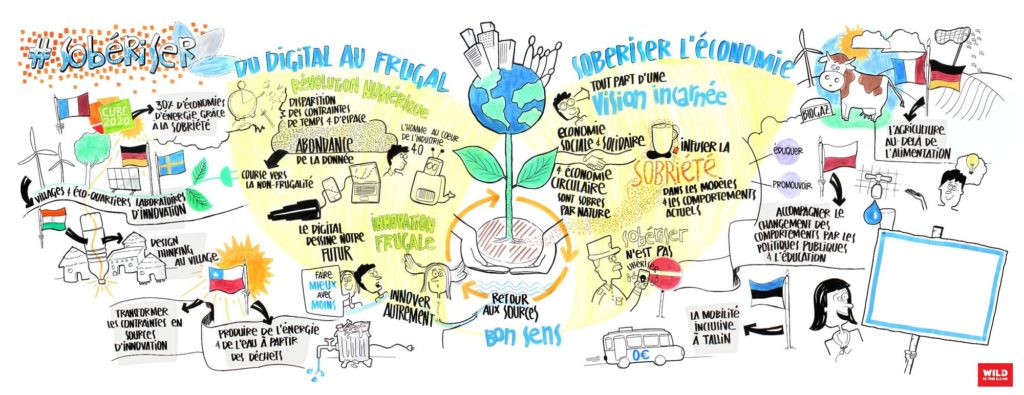Actualités
#Soberizing means innovating for sustainable economic and social models and yes ! This can appeal to even the most traditional players.

Written by Marie-Hélène Morvan, #Sobériser published on LinkedIn
The basic threats to sustainability in Western countries can be traced to one problem: Over-consumption. So a modern form of sobriety should be an intricate part of the way forward.
At first mention, the concept of ‘sobriety’ is not appealing. In France, it goes against pleasure and abundance. In developing countries, and for the poorest segments of the Western population, suggesting ‘sobriety’ as a future might be seen as abandoning hope of escaping poverty. Anyone who believes in technology as a key for the future might see sobriety as a kind of outdated resistance to progress. Does sobriety mean the opposite of growth? Shrinkage of markets? Are public policies that encourage sobriety of consumption for energy, materials, data, legitimate?
If I look at sobriety from a different perspective, however, I see it as a form of efficiency, focus, having “more for less. » Then, perhaps there could be a way to engage even the most reluctant corporate leaders or policy-makers into #soberizing the economy and the society.
From the corporate perspective, wasting resources never leads to success and growth. And so, using resources with a lot more care does not mean shrinking, but being efficient. Energy, raw materials, but also human skills are valuable resources that should be nurtured and used wisely. So-called 4.0 industry, based on big data, robotics and sensors technology, is a game-changer in optimizing the efficiency in factories. It also saves resources, and so contributes to #soberizing production.
Another form of sobriety can be found in the models of countries transitioning to all-digital systems, for example the e-government of Estonia. It saves time, travel and resources. Most of all, it fosters agility and reactivity. Wide-scale digitalization also promotes financial inclusion: Recent nation-wide developments in India offer interesting lessons, showing us both the benefits and potential threats involved in the digital wave.
Frugal innovation, which has emerged from places with constrained resources, is now inspiring R&D everywhere : by focusing on the essential, and re-using resources whenever possible, rather than re-inventing the wheel, it is a quintessential approach for #soberizing.
These examples, illustrating realistic trajectories to #soberize the world, are just a few of those collected in a recent book #Sobériser, Innover pour un monde durable [Soberize, Innovate for a sustainable world], inspired by multiple trends in France, Germany, Sweden, Estonia, Poland, India and Chile.
I co-authored this publication with a group of 10 executives from 10 firms and institutions in France, all of whom are members of the FNEP, a French think-tank focusing on the interface of public policies and the private sector, Valérie Bépoix, Philippe Bertrand, Christelle Chabredier, Victor Degbo, Ahcène Gheroufella, Thibaud Labalette, Delphine Labry, Robert Muhlke, and Remi Rosat.